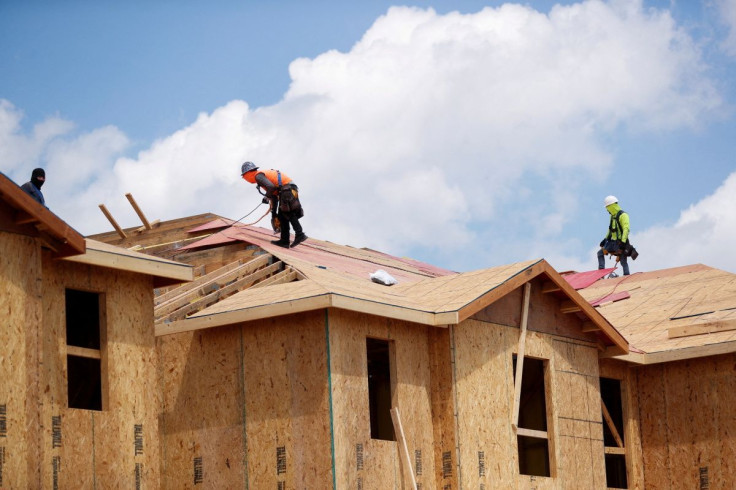U.S. Consumer Confidence Slips; House Prices Maintain Upward Trend

U.S. consumer confidence fell to a five-month low month in February, with fewer consumers planning to purchase homes, automobiles and go on vacation over the next six months amid concerns about the short-term economic outlook.
The survey from the Conference Board on Tuesday also showed consumers' inflation expectations rising after moderating for two straight months. But with the labor market rapidly churning out jobs and COVID-19 cases subsiding, the second straight monthly decline in confidence and drop in buying intentions likely do not signal a major slowdown in consumer spending.
Retail sales surged in January even as confidence ebbed.
"Though inflation is high and a major concern for consumers, it hasn't historically restricted spending," said Robert Frick, corporate economist at Navy Federal Credit Union in Vienna, Virginia. "With the Omicron wave quickly subsiding and many states and cities lifting restrictions, we should expect spending, especially on services, to accelerate."
The Conference Board said its consumer confidence index dipped to a reading of 110.5 this month, the lowest since last September, from 111.1 in January. Economists polled by Reuters had forecast the index decreasing to 110.0.
The index remains above its pandemic lows. Unlike the University of Michigan's consumer sentiment index, which fell to a decade low in mid-February, the Conference Board survey puts more emphasis on the labor market.
The Conference Board survey's measure of current conditions improved, likely because of declining coronavirus infections, driven by the Omicron variant. Its gauge of expectations for growth in the short term fell to a five-month low, suggesting a moderation in growth in the first half.
But the economic slowdown being flagged by the survey will probably be modest, with business activity regaining speed in February as the drag from the Omicron surge diminished.
In a separate survey on Tuesday, data firm IHS Markit said its flash U.S. Composite PMI Output Index, which tracks the manufacturing and services sectors, rebounded to a reading of 56.0 this month from 51.1 in January. It attributed the sharp rise to "employees returning from sick leave, increased traveling and greater availability of raw materials."
A reading above 50 indicates growth in the private sector.
The acceleration in business activity in the survey mirrors the recent improvement in the so-called hard data like retail sales.
U.S. stocks were trading lower as fears of a war in Europe deepened amid escalating Russia-Ukraine tensions and threats of sanctions. The dollar fell against a basket of currencies. U.S. Treasury yields rose.
TIGHT LABOR MARKET
The Conference Board's so-called labor market differential, derived from data on respondents' views on whether jobs are plentiful or hard to get, fell to a still-high reading of 42.0 this month from 43.0 in January.
This measure correlates to the unemployment rate from the Labor Department. There were 10.9 million jobs openings at the end of December.
Consumers' inflation expectations over the next 12 months increased to 7.0% from 6.8% last month. With inflation expectations rising, fewer consumers expected to buy cars and other big-ticket items over the next six months. Consumers were also not keen on vacations, with the share planning to go on holiday over the same period the smallest since June 2021.
Plans to buy a house also fell, likely reflecting rising mortgage rates, which combined with soaring prices are making home purchasing unaffordable, especially for first-time buyers.
An acute shortage of homes is driving up prices. A third report on Tuesday showed the S&P CoreLogic Case-Shiller's 20 metropolitan area home price index rose 18.6% on a year-on-year basis in December after advancing 18.3% in November.
Strong house price inflation was mirrored by a fourth report from the Federal Housing Finance Agency showing house prices increased 17.6% in the 12 months through December after a similar gain in November.
© Copyright Thomson Reuters {{Year}}. All rights reserved.





















